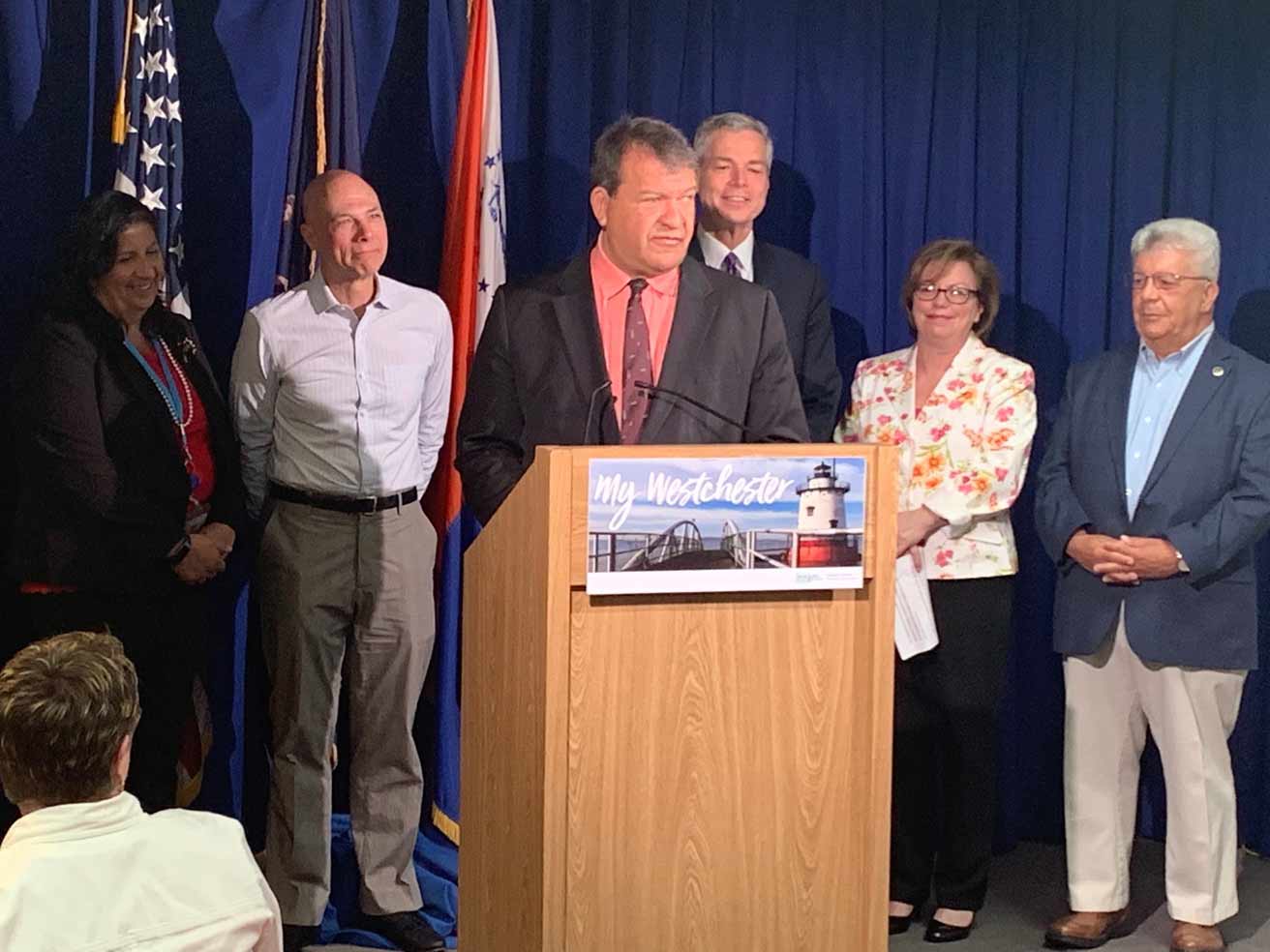
Westchester County has begun a program to help the business community and municipalities benefit from the Opportunity Zones concept created in the federal government”™s Tax Cuts and Jobs Act of 2017.
An announcement from County Executive George Latimer”™s office suggested that the county “is on the verge of a potential major real estate and business boom” thanks to the Opportunity Zones and the federal tax breaks they offer. Vince Ferrandino, principal of Ferrandino & Associates Inc., a planning consulting firm based in Elmsford, has been put under contract by the county to work with municipalities in attracting Opportunity Zones investments. A workshop was held for elected officials and other interested parties at the county executive”™s office on June 26.
At a news conference before the workshop Ferrandino said, “The Opportunity Zone program has been much ballyhooed but there”™s much confusion over what it can actually do.”
According to the IRS, Opportunity Zones are designed to spur economic development and job creation in distressed communities. Investors can defer tax on any prior gains invested in a Qualified Opportunity Fund (QOF) until the earlier of the date on which the investment in a QOF is sold or exchanged, or Dec. 31, 2026. If the QOF investment is held for longer than five years, there is a 10% exclusion of the deferred gain. After seven years, the 10% becomes 15%. If the investor holds the investment in the fund for at least 10 years, the investor is eligible for an increase in basis of the QOF investment equal to its fair market value on the date that the QOF investment is sold or exchanged, thus making the gain tax free.
“There are about 8,000 Opportunity Zones or census tracts in the country. In New York state, there are about 600,” Ferrandino said. In Westchester, there are 12 zones designated in eight communities, according to the county executive”™s office, including Cortlandt, Mount Pleasant, Mount Vernon, New Rochelle, Peekskill, Port Chester, White Plains and Yonkers.
“Everyone thinks it”™s a relatively new program. It”™s not,” Ferrandino said. “It”™s been around for a year and a half. However, the IRS has just finalized its regulations two months ago.”
According to the IRS, QOF money is not limited to real estate investment. It allows investments to be made in businesses located in the Opportunity Zones but has restrictions on activity the business conducts outside of the zone, which must be observed in order for the tax benefits to be retained. QOF money cannot finance liquor stores, massage parlors, tanning salons, casinos, golf courses or country clubs.
Port Chester Mayor Richard A. Falanka attended the session and said, “Practically the entire village is an Opportunity Zone, so we”™re here today with our staff to gather more information of what the Opportunity Zones can be for the village of Port Chester.”
White Plains Mayor Tom Roach said, “This is another tool in our toolbox and, actually, some of the properties that are part of our zone are actually city-owned properties that we plan for development, so this is another component we can tout when we talk to potential developers of the sites.” Roach identified the Galleria shopping mall, the city”™s Bronx Street Parking Lot at the train station and an area near White Plains Hospital as among the prominent locations in his city”™s Opportunity Zone.
“The bad news about the Opportunity Zones program, unless they amend the regulations, is that the investment must be made by Dec. 31 of this year,” Ferrandino said. “I am hoping that”™s going to be extended but there is no guarantee at this point.”
Latimer said, “The county ought to be able to be there to assist particularly when we have, in the case of Opportunity Zones, a program that carries real benefits for real estate developers but involves a certain degree of work and understanding of the complexities of real estate finance that we can best do when we do it jointly. We want to see this thing move as quickly as it can for the benefit of the municipal governments.”
Latimer said that while he supports the part of the 2017 tax bill that established Opportunity Zones, “There are other parts of that I don”™t support, such as the SALT (state and local taxes) deduction loss and I think that shows balance, that you can agree when there”™s something to agree with and there”™s something to dispute when there”™s something to dispute. It”™s not an automatic disagreement on everything.”
Latimer did have a criticism regarding the delay between when the tax law passed and the date the IRS finally issued its regulations. “This program ”“ to be established in December 2017 and have IRS regs in April of 2019 ”“ isn”™t the speediest way to implement it, so we”™re trying to stay on the front end of it … because we want to see this thing move as quickly as it can for the benefit of the municipal governments,” he said.


















